
Hwange National Park: The Heart of Zimbabwe's Wild Beauty
Hwange National Park is Zimbabwe's largest and oldest game reserve, covering an area of over 14,600 square kilometers. This sprawling wilderness is home to more than 100 species of mammals, including the famed Big Five: lions, leopards, rhinos, elephants, and buffaloes. The park is especially renowned for its large elephant population, which is among the highest in Africa. Visitors to Hwange can experience a variety of landscapes, from sprawling grasslands and mopane woodlands to rugged hills and seasonal wetlands. The park's diverse habitats support an incredible array of wildlife, making it a prime destination for game drives and guided walking safaris. Bird watchers will also be delighted with over 400 bird species, including the rare and elusive African painted dog. Hwange is not just about wildlife; it also offers rich cultural experiences. Nearby villages provide a glimpse into the traditional lifestyles of the local people. Visitors can engage in community tours and learn about the customs, crafts, and daily life of the indigenous tribes. With comfortable lodges and campsites nestled within the park, Hwange offers both luxury and rustic accommodations, making it accessible for all types of travelers.
Local tips in Hwange National Park
- Best Time to Visit: The dry season (July to October) is ideal for wildlife viewing as animals gather around waterholes.
- Local Guides: Hiring a local guide can enhance your safari experience with insider knowledge and spotting expertise.
- Accommodation: Book lodges and campsites well in advance, especially during peak season.
- Pack Essentials: Bring binoculars, a camera, sunscreen, and insect repellent.
- Cultural Visits: Don't miss the chance to visit nearby villages for an authentic cultural experience.
Hwange National Park: The Heart of Zimbabwe's Wild Beauty
Hwange National Park is Zimbabwe's largest and oldest game reserve, covering an area of over 14,600 square kilometers. This sprawling wilderness is home to more than 100 species of mammals, including the famed Big Five: lions, leopards, rhinos, elephants, and buffaloes. The park is especially renowned for its large elephant population, which is among the highest in Africa. Visitors to Hwange can experience a variety of landscapes, from sprawling grasslands and mopane woodlands to rugged hills and seasonal wetlands. The park's diverse habitats support an incredible array of wildlife, making it a prime destination for game drives and guided walking safaris. Bird watchers will also be delighted with over 400 bird species, including the rare and elusive African painted dog. Hwange is not just about wildlife; it also offers rich cultural experiences. Nearby villages provide a glimpse into the traditional lifestyles of the local people. Visitors can engage in community tours and learn about the customs, crafts, and daily life of the indigenous tribes. With comfortable lodges and campsites nestled within the park, Hwange offers both luxury and rustic accommodations, making it accessible for all types of travelers.
When is the best time to go to Hwange National Park?
Iconic landmarks you can’t miss
Victoria Falls
Discover the awe-inspiring beauty of Victoria Falls, a UNESCO World Heritage Site, and one of the Seven Natural Wonders of the World.
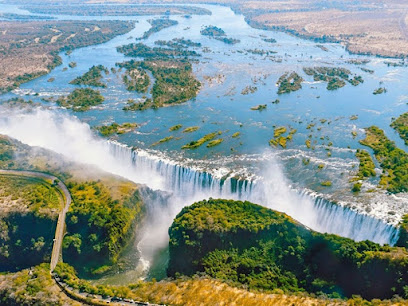
Victoria Falls National Park
Discover the breathtaking beauty and exhilarating adventures at Victoria Falls National Park, a natural wonder in Zimbabwe filled with wildlife and stunning landscapes.
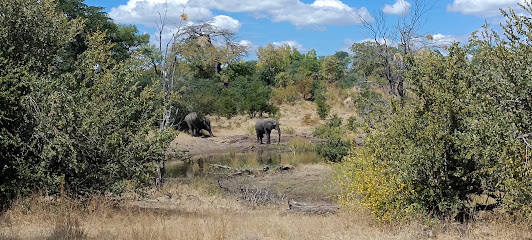
Nyanga National Park
Discover the natural wonders of Nyanga National Park, a breathtaking national park in Zimbabwe known for its stunning landscapes and diverse wildlife.
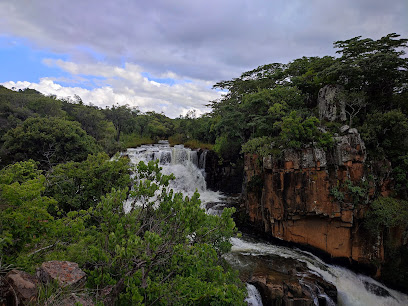
Chinhoyi Caves
Discover the mesmerizing beauty and rich heritage of Chinhoyi Caves, a national park that captivates with its stunning limestone formations and crystal-clear waters.
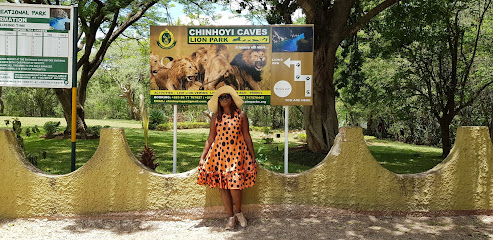
Matobo National Park
Experience the breathtaking landscapes and rich biodiversity of Matobo National Park, a UNESCO World Heritage site in Zimbabwe.
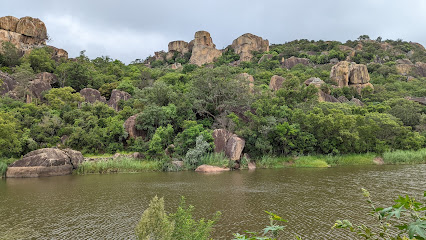
Hwange Safari Lodge
Experience luxury and adventure at Hwange Safari Lodge, where stunning wildlife meets serene accommodations in Zimbabwe's premier national park.

Victoria Falls Crocodile Park
Discover the wonders of wildlife at Victoria Falls Crocodile Park, where conservation meets adventure in the heart of Zimbabwe.
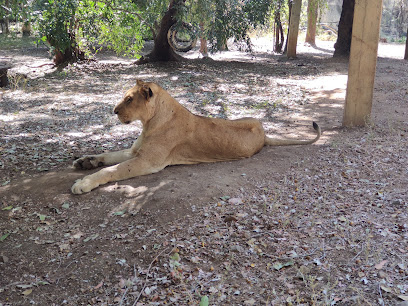
Mana Pools National Park
Explore Mana Pools National Park, a breathtaking UNESCO World Heritage site, where wildlife and nature come together in perfect harmony.
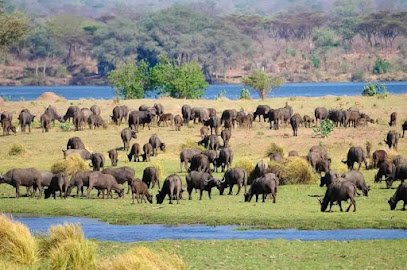
Hwange Main Camp
Experience the beauty and adventure of Hwange Main Camp, the gateway to Zimbabwe's wildlife wonderland and a haven for nature lovers.
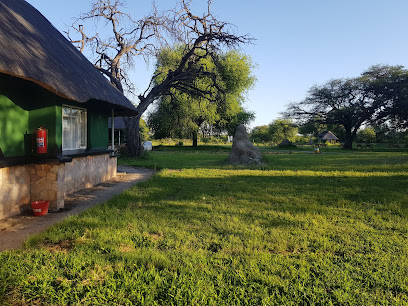
Khami Ruins
Discover the ancient wonders of Khami Ruins, a UNESCO World Heritage Site, showcasing the rich heritage of Zimbabwe's Khami civilization.
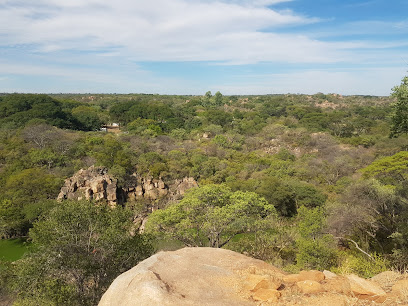
Robins Camp
Experience the serenity of Robins Camp in Hwange National Park, where adventure meets relaxation amidst Zimbabwe's breathtaking wildlife.
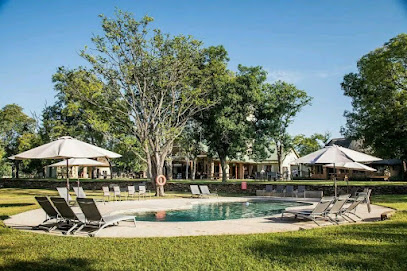
The Hide Lodge
Discover family adventures at The Hide Lodge in Hwange National Park, where nature meets education and unforgettable memories are made.

Davison's Camp
Discover the wild beauty of Davison's Camp in Zimbabwe, where luxury meets nature for an unforgettable safari adventure.
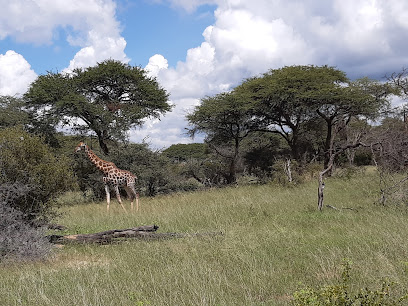
Hwange Safaris
Discover the wild heart of Zimbabwe at Hwange Safaris, where unforgettable wildlife encounters and breathtaking landscapes await every traveler.
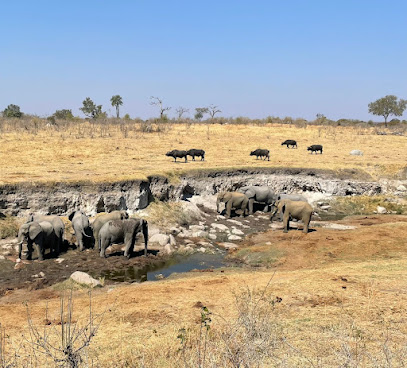
Gwango Elephant Lodge
Experience luxury and wildlife at Gwango Elephant Lodge, your gateway to the wonders of Hwange National Park, Zimbabwe's premier safari destination.

Unmissable attractions to see
Davison's Camp
Discover the beauty and adventure of wildlife at Davison's Camp, a premier safari destination in Zimbabwe's majestic landscapes.
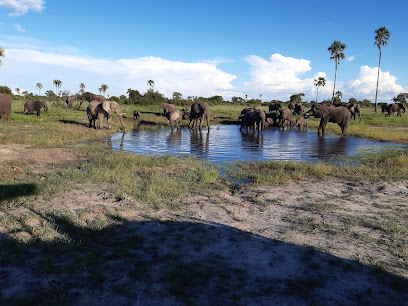
Hwange Safaris
Discover the untamed beauty of Hwange National Park, where wildlife roams free and nature's wonders await your exploration.
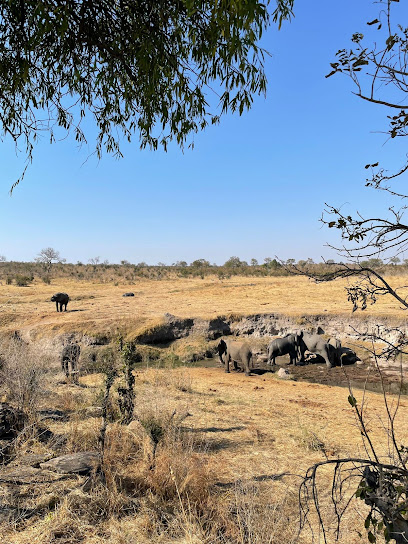
Kalope Dam
Experience the serene beauty of Kalope Dam in Hwange, Zimbabwe, a perfect escape for nature lovers and adventure seekers alike.
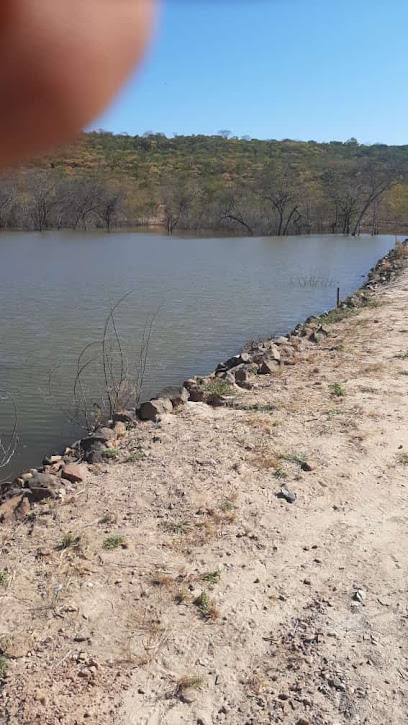
Camp Chitubu, Hwange National Park
Experience the wild heart of Zimbabwe at Camp Chitubu in Hwange National Park, where unforgettable wildlife encounters await.
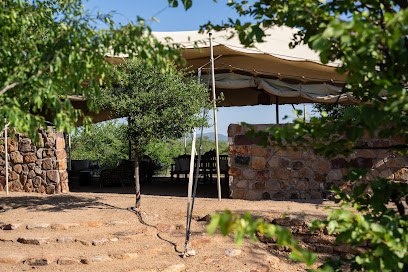
Baobab Tree
Explore the iconic Baobab Tree in Hwange, a stunning natural attraction embodying beauty and resilience in Zimbabwe's breathtaking landscapes.
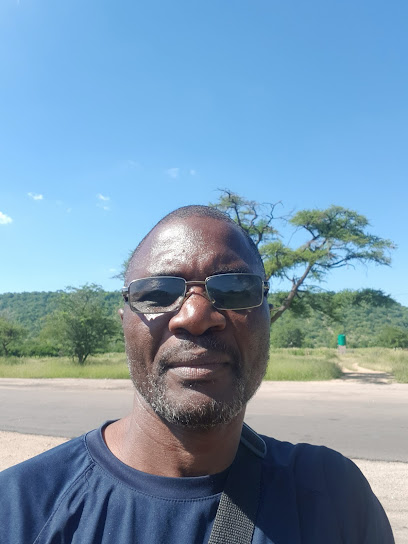
Inzila Mobile Safaris
Explore the wild beauty of Hwange National Park with Inzila Mobile Safaris, where unforgettable wildlife encounters await in the heart of Zimbabwe.
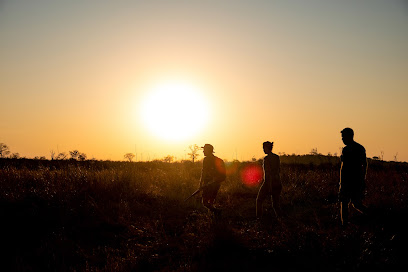
Waterhole, Hwange National Park
Experience the vibrant wildlife at Waterhole in Hwange National Park, a premier destination for nature lovers and safari enthusiasts in Zimbabwe.
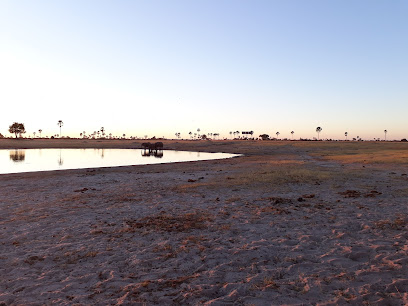
Makona National Park
Explore the breathtaking landscapes and diverse wildlife of Makona National Park in Zimbabwe, a true paradise for nature lovers and adventure seekers.
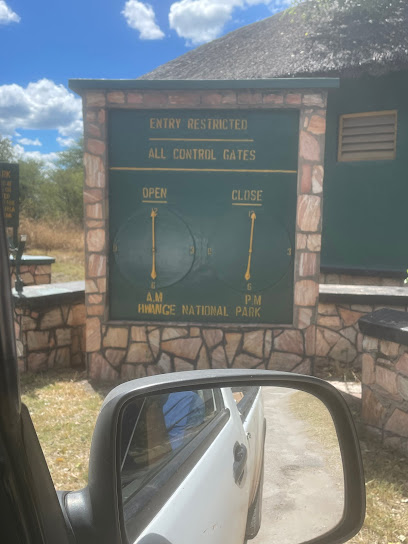
Lukosi River Bridge
Experience the breathtaking beauty of Zimbabwe at Lukosi River Bridge, a serene escape into nature's wonders in Hwange.
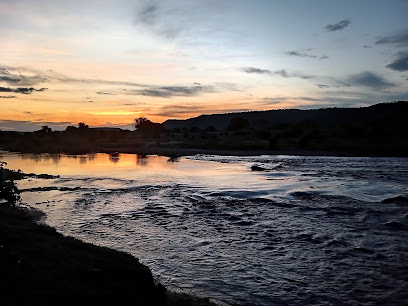
Hwange national park
Discover the wild heart of Zimbabwe at Hwange National Park, where majestic elephants roam and spectacular landscapes await.

Lay By
Explore Lay By in Hwange: a serene landscape teeming with wildlife, providing an unforgettable experience for nature lovers and adventure seekers alike.

Gamba Pool
Discover the tranquil beauty of Gamba Pool in Hwange, Zimbabwe, a wildlife haven and a serene escape into nature's embrace.

Jambili Picnic Site
Explore Jambili Picnic Site, a serene escape in Zimbabwe perfect for picnics, relaxation, and enjoying the great outdoors amidst stunning natural beauty.

Little Makololo
Explore Little Makololo in Hwange National Park, a stunning wildlife sanctuary offering exceptional safari experiences and breathtaking landscapes.

Sugar Sugar Baobab Tree
Discover the majestic Sugar Sugar Baobab Tree in Hwange, a natural wonder that embodies the beauty and resilience of Zimbabwean nature.

Essential places to dine
Ocean Basket Sam Levy
Discover the taste of fresh seafood at Ocean Basket Sam Levy in Harare – where Mediterranean flavors meet local hospitality.
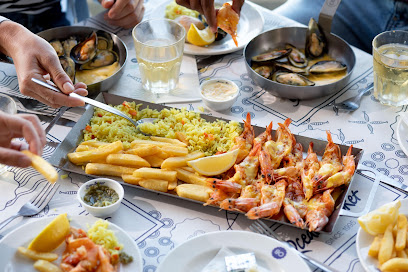
Robins Camp
Experience nature at its finest at Robins Camp in Hwange National Park - where comfort meets adventure amidst breathtaking wildlife.
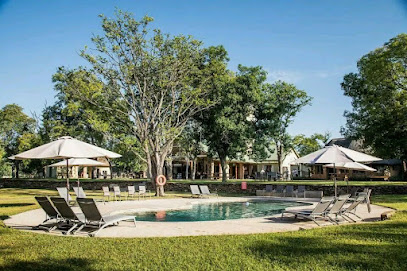
Four Fingers Book Cafe
Discover the perfect blend of literature and gastronomy at Four Fingers Book Cafe in Hwange – where every meal comes with a story.
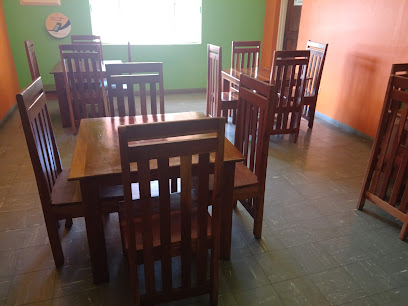
Hwange Main Camp Restaurant
Experience authentic Zimbabwean cuisine amidst stunning natural beauty at Hwange Main Camp Restaurant in Hwange National Park.
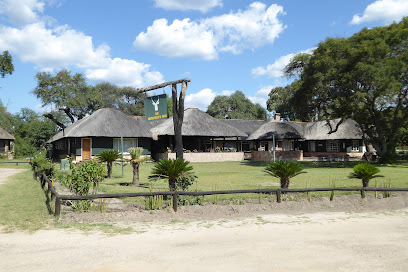
Markets, malls and hidden boutiques
Hwange National Park
Discover the majestic wildlife and breathtaking landscapes of Hwange National Park, a top destination for nature enthusiasts in Zimbabwe.
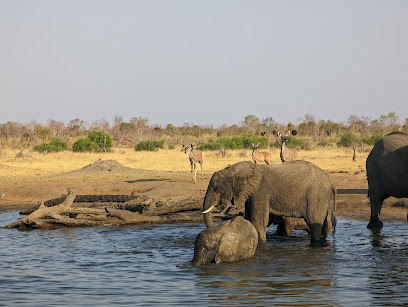
TM Supermarket
Discover the ultimate shopping convenience at TM Supermarket in Hwange, offering a variety of local and international products under one roof.
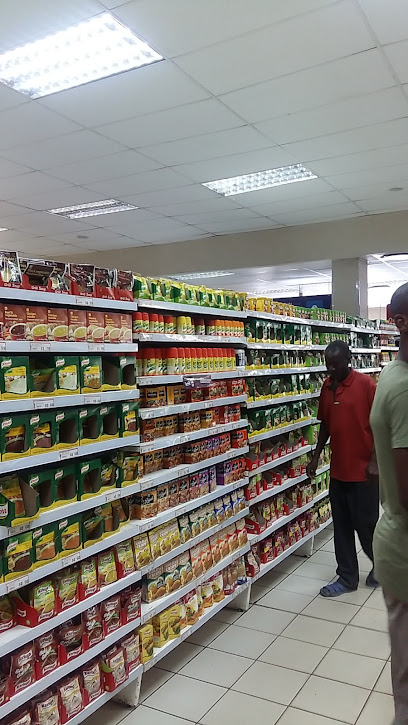
Ok Supermarket
Discover convenience and local flavors at Ok Supermarket, Hwange's essential shopping destination for all your travel needs.
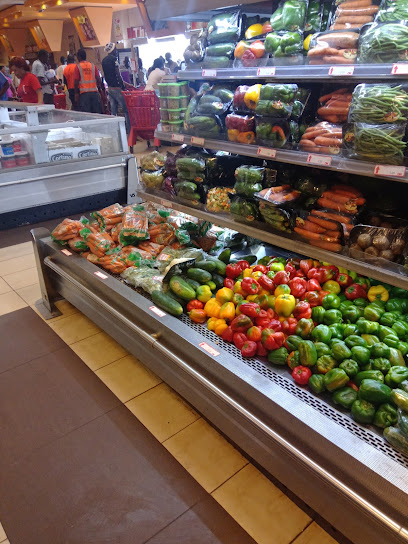
Zapalala Supermarket
Experience the essence of Hwange at Zapalala Supermarket, where local culture meets vibrant shopping.

Bata Hwange
Discover stylish footwear and clothing at Bata Hwange, the perfect shopping destination for tourists in Hwange, Zimbabwe.
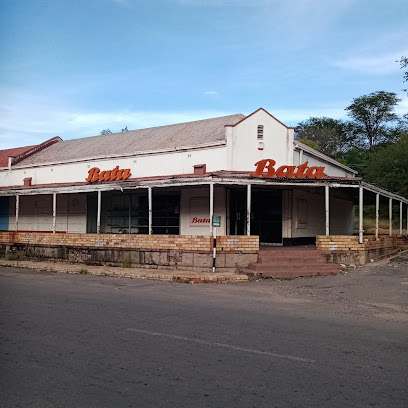
EDGARS STORES
Explore Edgars Stores in Hwange for a delightful shopping experience with a wide range of clothing and exceptional customer service.
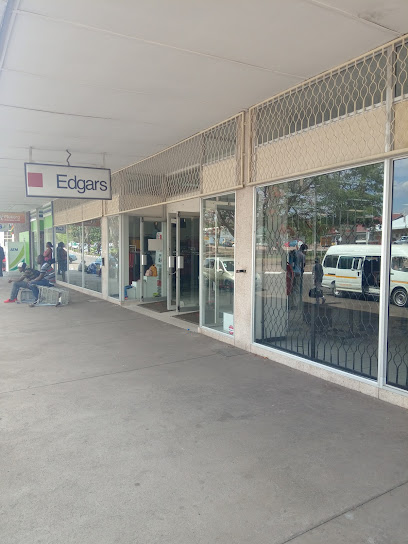
TV Sales and Home
Explore a wide variety of stylish furniture and home decor at TV Sales and Home, Hwange's premier furniture store, reflecting Zimbabwean culture and craftsmanship.
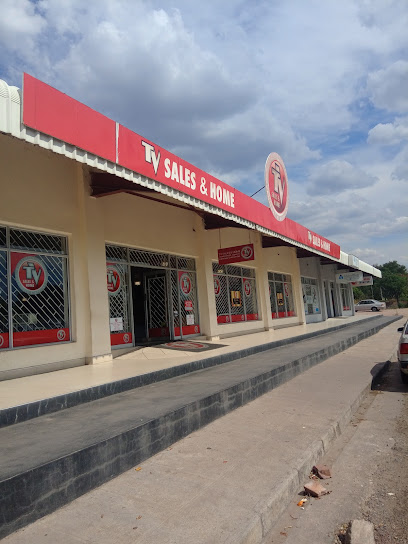
Mega KG Supermarket
Discover local flavors and essential supplies at Mega KG Supermarket, your ultimate grocery destination in Hwange, Zimbabwe.

Power Sales
Explore Power Sales in Hwange for unique clothing options that blend local culture with modern style, perfect for every fashion enthusiast.
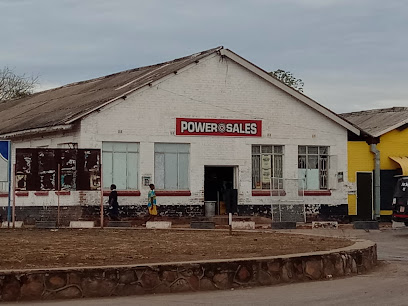
Pamuzi general dealers
Discover the best local groceries at Pamuzi General Dealers in Hwange, your go-to store for essentials and unique Zimbabwean products.

Image creations boutique
Explore the vibrant culture of Hwange at the Image Creations Boutique, where unique handcrafted treasures await every traveler.
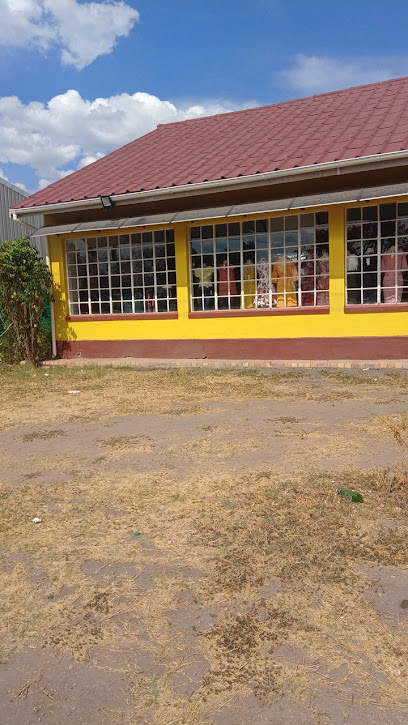
Lukosi Business Center
Experience the essence of local shopping and culture at Lukosi Business Center in Hwange, Zimbabwe's vibrant retail destination.
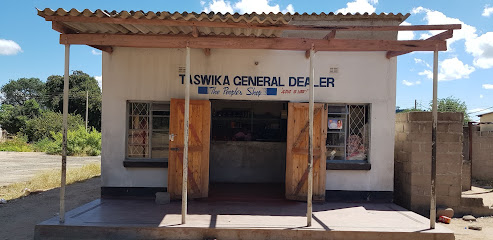
La Foodie Xpresso
Explore local flavors at La Foodie Xpresso, a charming grocery store in Hwange offering a diverse selection of culinary delights for every palate.
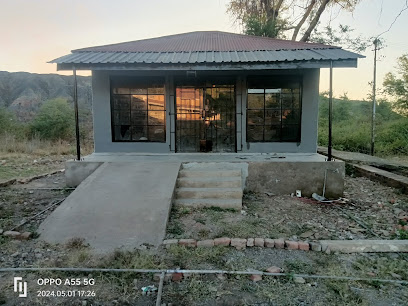
Lukosi Shopping Centre
Explore the heart of Hwange at Lukosi Shopping Centre, where shopping meets local culture and delightful dining experiences await.

Gulalembila Stores
Explore the authentic flavors of Zimbabwe at Gulalembila Stores in Hwange, a local grocery destination filled with delightful products.

Essential bars & hidden hideouts
Chicken Inn
Discover the vibrant flavors of Chicken Inn in Hwange, a fast food haven offering delicious chicken dishes and quick bites for every traveler.
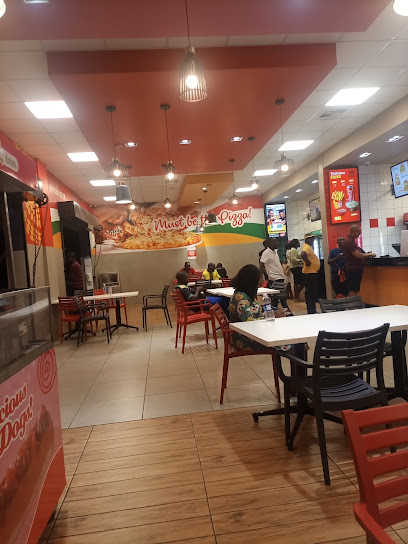
Hwange Cricket Club
Discover the lively atmosphere and delightful cocktails at Hwange Cricket Club, the perfect spot to unwind in Hwange, Zimbabwe.
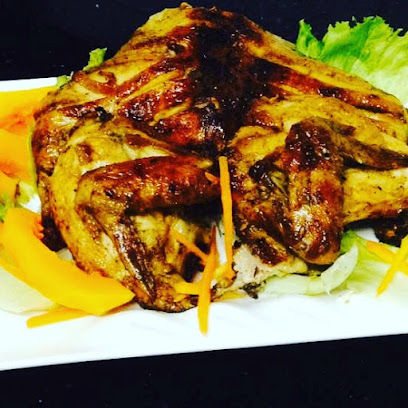
Colliery Club
Discover the Colliery Club in Hwange, where sports meet social life in a vibrant atmosphere perfect for relaxation and camaraderie.
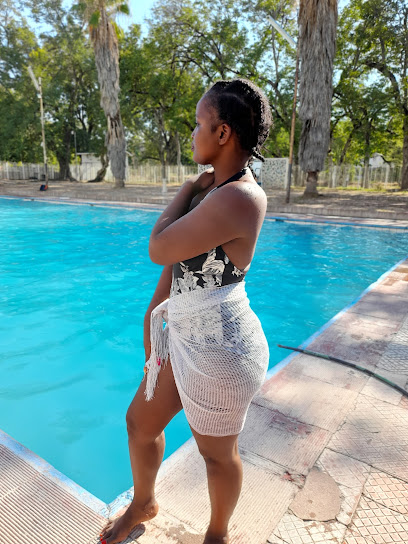
Hwange Main Camp Restaurant
Experience the flavors of Zimbabwe at Hwange Main Camp Restaurant, a unique dining spot nestled in the heart of Hwange National Park.
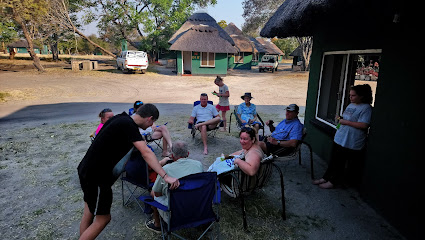
Dete Cocktail bar
Discover the vibrant atmosphere of Dete Cocktail Bar, a must-visit beer hall offering local drinks and a lively ambiance.
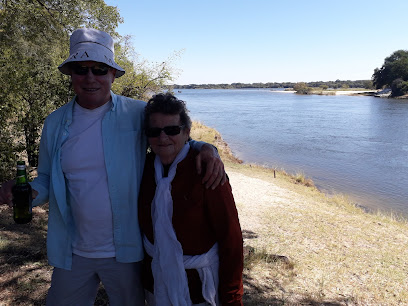
Shadows Grill House
Experience the vibrant flavors of Shadows Grill House, a family-friendly restaurant in Hwange, perfect for a memorable dining experience.
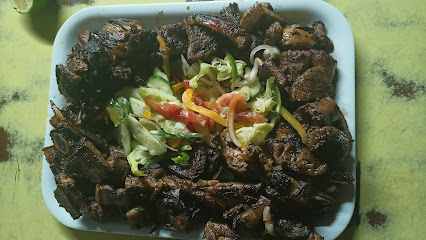
Sports Cafe
Discover the best of sports and dining at Sports Cafe in Hwange, a lively restaurant perfect for food lovers and sports enthusiasts alike.
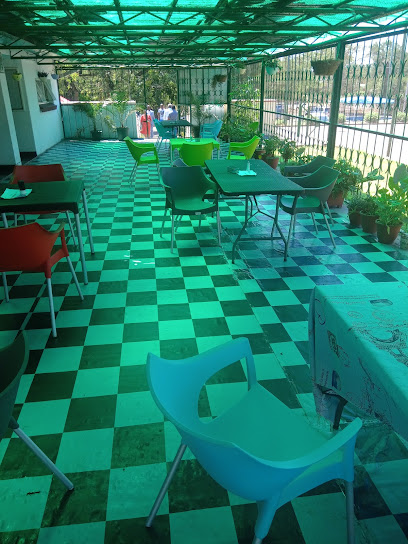
Pizza Inn
Savor mouthwatering pizzas and a welcoming atmosphere at Pizza Inn, Hwange's favorite dining spot for families and friends.

Upshot Mabhiza
Experience the best of Zimbabwean grilled cuisine at Upshot Mabhiza in Hwange, where relaxation meets delicious flavors in a vibrant atmosphere.
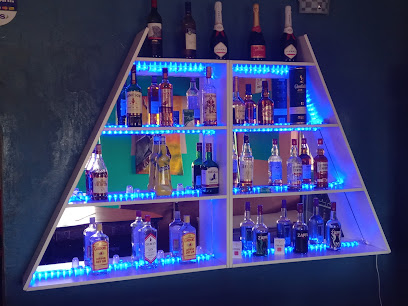
Elephant and Dassie Restaurant
Experience the rich flavors of Zimbabwean cuisine at Elephant and Dassie Restaurant, nestled in the picturesque Sinamatella Camp.

Tshanini Bar
Experience the lively atmosphere of Tshanini Bar in Dete, where local brews and friendly faces await in a welcoming beer hall.
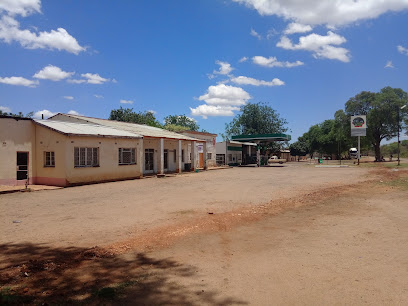
Lions Den Bar
Discover the lively atmosphere of Lions Den Bar in Dete, where great beers meet a welcoming community in the heart of Zimbabwe.
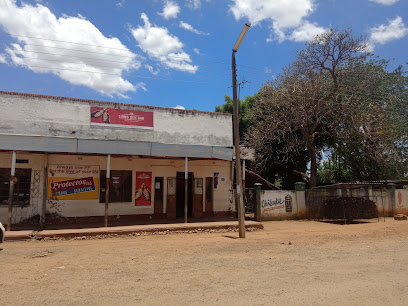
Madidilika Bottle Store
Experience the vibrant culture of Hwange at Madidilika Bottle Store, where local brews and friendly company await in a cozy setting.
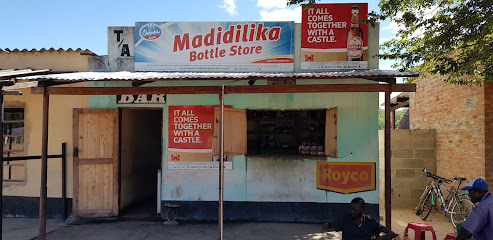
Afro Inn Takeaways
Experience the authentic tastes of Zimbabwean cuisine at Afro Inn Takeaways in Hwange, where local flavors come alive.
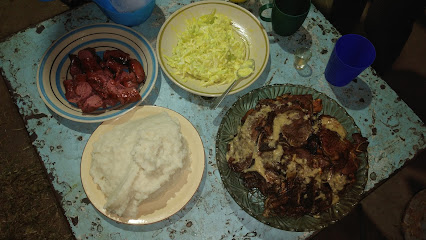
Local Phrases about Hwange National Park
-
- HelloMhoro
[Mhoro] - GoodbyeSiyabonga
[Siyabonga] - YesYebo
[Yebo] - NoCha
[Cha] - Please/You're welcomeNgiyacela
[Ngiyacela] - Thank youNgiyabonga
[Ngiyabonga] - Excuse me/SorryUxolo
[Uxolo] - How are you?Unjani?
[Unjani?] - Fine. And you?Ngiyaphila. Wena?
[Ngiyaphila. Wena?] - Do you speak English?Ukhuluma isiNgisi?
[Ukhuluma isiNgisi?] - I don't understandAngizwa
[Angizwa]
- HelloMhoro
-
- I'd like to see the menu, pleaseNginakucela ukubona imenyu, ngiyacela
[Nginakucela ukubona imenyu, ngiyacela] - I don't eat meatAngikwazi ukudla inyama
[Angikwazi ukudla inyama] - Cheers!Onglabezulu!
[Onglabezulu!] - I would like to pay, pleaseNginakucela ukulipha
[Nginakucela ukulipha]
- I'd like to see the menu, pleaseNginakucela ukubona imenyu, ngiyacela
-
- Help!Siza!
[Siza!] - Go away!Hamba!
[Hamba!] - Call the Police!Biza amaphoyisa!
[Biza amaphoyisa!] - Call a doctor!Biza udokotela!
[Biza udokotela!] - I'm lostNgiziphole
[Ngiziphole] - I'm illNgizwa
[Ngizwa]
- Help!Siza!
-
- I'd like to buy...Nginakucela ukuthenga...
[Nginakucela ukuthenga...] - I'm just lookingNgikubona kuphela
[Ngikubona kuphela] - How much is it?Kuyaphi?
[Kuyaphi?] - That's too expensiveLokhu kungenzeka
[Lokhu kungenzeka] - Can you lower the price?Ungahlalisa inani?
[Ungahlalisa inani?]
- I'd like to buy...Nginakucela ukuthenga...
-
- What time is it?Yintoni ixesha?
[Yintoni ixesha?] - It's one o'clockKuyilithi ekuseni
[Kuyilithi ekuseni] - Half past (10)Ngesonto (10)
[Ngesonto (10)] - MorningEkuseni
[Ekuseni] - AfternoonEkusihlanu
[Ekusihlanu] - EveningEbusuku
[Ebusuku] - YesterdayNgesikhathi esidlule
[Ngesikhathi esidlule] - TodayNamhlanje
[Namhlanje] - TomorrowKusasa
[Kusasa] - 1Kunye
[Kunye] - 2Kubili
[Kubili] - 3Kuthathu
[Kuthathu] - 4Kune
[Kune] - 5Kuningi
[Kuningi] - 6Kutshatshazi
[Kutshatshazi] - 7Kude
[Kude] - 8Kwane
[Kwane] - 9Kukhulu
[Kukhulu] - 10Kumi
[Kumi]
- What time is it?Yintoni ixesha?
-
- Where's a/the...?Kuphi i...
[Kuphi i...] - What's the address?Iyiphi i-akhresi?
[Iyiphi i-akhresi?] - Can you show me (on the map)?Ungangishowela (emephu)?
[Ungangishowela (emephu)?] - When's the next (bus)?Ngokuphi isiteshi esilandelayo?
[Ngokuphi isiteshi esilandelayo?] - A ticket (to ....)Ikhiti (ku ....)
[Ikhiti (ku ....)]
- Where's a/the...?Kuphi i...
History of Hwange National Park
-
Hwange National Park, originally known as Wankie Game Reserve, was established in 1928. The park was named after a local Nhanzwa chief, Chief Hwange, and covers approximately 14,651 square kilometers. It was designated as a protected area to conserve the diverse flora and fauna found in the region.
-
During the colonial era, Hwange National Park underwent significant development under British rule. The park's infrastructure, including roads, rest camps, and waterholes, was established to promote tourism and wildlife conservation. The British colonial government emphasized the preservation of wildlife, and Hwange became a model for wildlife management in the region.
-
Ted Davison, the park's first warden, played a pivotal role in Hwange's early development. Appointed in 1929, Davison dedicated over three decades to the management and conservation of the park. His efforts in establishing waterholes, anti-poaching units, and wildlife monitoring programs were instrumental in shaping Hwange as a premier wildlife destination.
-
After Zimbabwe gained independence in 1980, Hwange National Park continued to thrive. The newly formed government focused on preserving natural heritage and boosting tourism. The park saw increased investment in infrastructure and conservation programs, ensuring its continued status as a prime wildlife sanctuary.
-
Waterholes are a critical feature of Hwange National Park, providing essential water sources for the wildlife. Many of these waterholes were artificially created during the 1930s and 1940s to support the park's growing animal populations. Today, these waterholes attract a diverse array of species and offer visitors prime game-viewing opportunities.
-
The area surrounding Hwange National Park is home to several indigenous communities, including the Ndebele and Shona people. These communities have a rich cultural heritage and maintain a deep connection to the land and its wildlife. Traditional practices, folklore, and crafts are integral to the cultural landscape of the region.
-
Hwange National Park faces various conservation challenges, including poaching, habitat loss, and human-wildlife conflict. Numerous organizations and initiatives are dedicated to addressing these issues through anti-poaching patrols, community engagement, and habitat restoration projects. These efforts are crucial in ensuring the long-term survival of Hwange's diverse ecosystems.
-
Hwange National Park is renowned for its incredible biodiversity. It hosts over 100 mammal species, including the Big Five—elephants, lions, leopards, rhinoceroses, and buffaloes. The park is also home to a vast array of bird species, reptiles, and plant life, making it a biodiversity hotspot and a vital conservation area.
Hwange National Park Essentials
-
Hwange National Park is located in the western part of Zimbabwe, approximately 100 kilometers from Victoria Falls. The nearest airport is Victoria Falls International Airport (VFA), which is well-connected with major international destinations. From the airport, you can hire a taxi or arrange a transfer with a tour operator to Hwange National Park. The journey by road typically takes around 2 hours. Alternatively, you can take a train from Bulawayo to Hwange town, and then a short drive into the park.
-
Once inside Hwange National Park, the most common way to get around is by 4x4 vehicle, either self-driven or as part of a guided tour. Guided game drives are highly recommended for spotting wildlife. If you prefer self-drive, ensure your vehicle is well-equipped and suitable for rough terrain. Some lodges and camps offer shuttle services within the park. Public transportation options are limited, so it's best to arrange all transportation in advance.
-
The official currency in Zimbabwe is the Zimbabwean Dollar (ZWL), but US Dollars (USD) are widely accepted, especially in tourist areas like Hwange National Park. Credit cards are accepted in some lodges and larger establishments, but it's advisable to carry cash for smaller purchases and tips. ATMs are scarce within the park, so withdraw sufficient cash before your visit.
-
Hwange National Park is generally safe for tourists, but it's important to take standard precautions. Avoid walking alone at night and always follow the advice of your guide. Keep your belongings secure and be aware of your surroundings, especially in crowded areas. Crime rates targeting tourists are low, but it's always best to stay vigilant. Avoid areas outside the park that are not recommended by locals or your tour guide.
-
In case of emergency, contact the nearest park ranger station or lodge staff, who can assist with medical emergencies and other urgent situations. It's recommended to have comprehensive travel insurance that covers medical emergencies. The general emergency number in Zimbabwe is 999. For minor health issues, carry a basic first-aid kit and necessary medications, as medical facilities within the park are limited.
-
Fashion: Do wear neutral-colored clothing to blend in with the environment and avoid attracting wildlife. Don't wear bright colors or strong perfumes. Religion: Do be respectful of local customs and traditions. Public Transport: Do use private transportation options; public transport within the park is minimal. Greetings: Do greet people with a friendly smile or a handshake. Eating & Drinking: Do try local foods and drinks offered at lodges and camps. Don't litter; always dispose of waste properly to protect the environment.
-
To experience Hwange National Park like a local, join a walking safari with a knowledgeable guide to learn about the flora and fauna up close. Visit the Painted Dog Conservation Center to understand the efforts to protect endangered species. Engage with local communities around the park to learn about their culture and traditions. Don't miss the opportunity to go on a night game drive for a chance to spot nocturnal wildlife.
Trending Landmarks in Hwange National Park
Nearby Cities to Hwange National Park
-
Things To Do in Victoria Falls
-
Things To Do in Livingstone
-
Things To Do in Kasane
-
Things To Do in Francistown
-
Things To Do in Katima Mulilo
-
Things To Do in Gweru
-
Things To Do in Selebi-Phikwe
-
Things To Do in Maun
-
Things To Do in Serowe
-
Things To Do in Kariba
-
Things To Do in Palapye
-
Things To Do in Chinhoyi
-
Things To Do in Mahalapye
-
Things To Do in Lusaka
-
Things To Do in Masvingo











